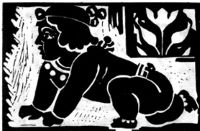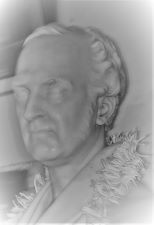CHRISTMAS DAY
#jesus #christmas



But was he really born in Bethlehem? When is the Christmas Day?
Jesus Christ was a historical character, but when and where he was born are shrouded in myth.
The story of Jesus’ birth comes to us through the Gospels according to Mathew, Mark, Luke and John, which are four parts of the New Testament. They were among the early followers of The Messiah, but the epistles were written at least fifty years after his crucifixion. The name Gospel, or Good News, suggests that these books were not reported news neither biography. And the Gospels differ among themselves too in the nativity story!
Jesus was born in present day Israel, that part is historical truth. Bethlehem is a few miles south of Jerusalem, whereas Nazareth is about 100 kilometers north, in the district of Galilee. Many times in the Bible Jesus has been referred to as The Nazarene. Only the Gospels by Mathew and Luke contain the story of Jesus’ birth, the other two do not. And all books repeatedly mention that Jesus comes from a place called Galilee in the north. But then why his birth story is implanted in Bethlehem of Judea? Could the reason be that an Israeli Prophet Micah prophesized that the Messiah would be born in Bethlehem? Because other than the birth narratives, there is no other specific mention of Jesus being in Bethlehem, ever.
To bring a family of carpenters to Bethlehem from Galilee, a pretext was necessary. Luke’s elaborate birth narrative explains that Joseph and a pregnant Mary had to travel to Bethlehem, because they had to comply with the Roman imperial census. Why to Bethlehem? Jesus was shown to be in the lineage of King David of Jerusalem, probably to give him a historical justification and build his reputation even more solidly. When the Gospels were written, Jesus was simply another obscure religious preacher, who died an inglorious death on a cross. He needed to be built up in a manner so that common people hold him in awe.
Curiously enough, the imperial census did happen, but at least ten years after Jesus’ birth.
Why, then, all the stories? Was it because, as mortal human beings, we do not want to look up to another mortal human being, as our Messiah, our Deliverer? Unless a godly halo is attached, can we not have faith in a person? So much so, that Luke takes Jesus back farther to Adam, the First Man. But, see the contradiction here. Jesus, being of immaculate birth, cannot belong to any genealogical tree. He is the Son of God, the Only Son of God, whom God sent to this world to die so that man’s sin is absolved. And man will live for evermore because of Christmas Day, so sings the carol. If so, then Joseph is not Jesus’ father. Then, how can David or Adam be Jesus’ forefathers? Mathew ends the genealogy with Jacob, father of Joseph. But Luke calls Jesus the son of Joseph!
The immaculate conception of Mary is also full of contradictions. Bible talks about Jesus’ brothers James, Joseph, Judas and Simon and about his sisters, too. Was Jesus Mary’s first-born? In my limited knowledge, I have not seen any reference to either way. James took up the leadership of the Christians in Jerusalem after Jesus and was put to death by the High Priest of Jewish Temple perhaps thirty years later. No other children of Mary were born of immaculate conception and Joseph fathered them all. But the Bible also claims that Mary remained a virgin all her life! Naturally, biologically that is not possible.
But why such preoccupation with Mary’s virginity? Old Testament is full of stories of all varieties of human failure, from the days of Adam through David, who all are forcibly linked to Jesus. The story of immaculate conception may have stemmed from Mathew’s quotation from a Greek version of Prophet Isaiah’s words that says ‘Behold, a virgin will conceive and give birth to a son’. But in the original Hebrew version the prophecy he only talked about a young woman, not a virgin. In the translation, the natural meaning was overshadowed by a myth.
Christmas is celebrated all over the world on December 25, but neither the Gospel according to Luke nor the Gospel according to Mathew mention Jesus’ birthday. The first Christians did not celebrate Jesus’ birthday! In fact they were opposed to celebrating any birthday, because they associated birthday celebration with pagan gods and of the evil kings like Herod. The first calendar mentioning the Feast of Nativity was compiled in 336 AD, in the time of Constantin. the first Roman king to adopt Christianity. By the 4th century as Christianity was spreading, another acculturation process was also happening where many pagan or folk customs were gradually being absorbed by the dominant religion. Around the last ten days of the passing year, the Roman festival of Saturnalia was observed. Saturn was the god of seeds and agriculture. On January 1 Romans observed their New Year Festival. December 25 was observed as the Birth of the Invisible Sun. According to the calendars used by the ancient Romans, the winter solstice fell on December 25. All of these led December 25 to be the day chosen to observe the Birth of Jesus Christ! Though many scholars do believe that Jesus was not even born in winter.
While shepherd watched their flocks by night
Them see a bright new shining star
Them hear a choir song
The music seemed to come from afar
Because of the reference to the shepherds being outside on the hills with their flock, many are of the opinion that the time of Jesus’ birth is in Springtime.
In a stable all forlorn
And in a manger cold and dark
Mary's little Boy was born
Curioser and curiouser, as Alice would have said. Because the donkey and the horse which seem to be fixtures in a nativity scene, were added even later, possibly in the eighth or nineth century.
So what do we find, once the myth is divorced from history? Possibly an exceptional man from a humble origin, a son of a carpenter, who called the God in Heaven his father, Abba, and talked about many simple rules to live by. He was perceived such a threat to the local Romans as well as the vested Pharisees and priests in the local temples, that he was put to a violent death when he was in his middle 30s. The total time of his preaching was only about 3 years. But he must have been such a charismatic personality and could attract such disciples who later built an empire in his name which has lasted for two millenniums and possibly will last many more. His life motivated many martyrs. His story influenced innumerable artists, sculptors, painters and poets to wondrous creations, transcending boundaries of language and nationality. His life is being celebrated (and trampled underfoot, too) in many ways across the globe in many small and big ways by ordinary people all the time. The Midnight Mass on December 24 – 25 is only a consolidation and remembrance of all the Glad Tidings of Comfort and Joy that every man and woman cherishes.
Comments
Reply here




Christmas
Beautifully written. I had faint ideas about these contradictions, but not in such co ordinated manner. Only 3 years of preaching and such a huge response. Amazing
Soma
24-12-2020 08:35:13